What can you Photograph
First let me state quite clearly that I am not a lawyer and this should not be taken as legal advice. If in doubt, consult with a qualified lawyer, preferably one with experience in areas such as privacy and/or intellectual property law and/or constitutional rights. Second, unless specifically stated otherwise, all comments refer to photography in the United States.
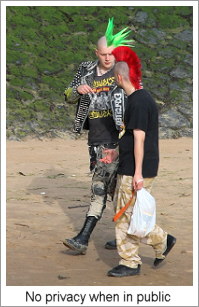
As a photographer in the United States you have the right to photograph pretty much anything anywhere except for a certain designated Military and Energy installations. which have been declared as off limits to photography because of national security concerns. The law governing this is 18 USC Section 795 ["Photographing and sketching defense installations"]. Of course this can lead to a "Catch 22" situation, where buildings don't want to draw attention to themselves by posting "No Photography" signs, so how are you supposed to know what you shouldn't photograph! (see the DARPA case). So apart from a few specific cases, the basic rule is that if you can see it and you are on public property (e.g. on the road or sidewalk) then you have the right to photograph it. National, state and local museums, art galleries, government buildings and libraries, even if perhaps technically "owned" by the public - and even if there is no barrier to entry and no entry fee - are still private property in this context and photography there may be restricted
If you are on private property, such as in a store, shopping mall, sports arena or theater, then you need permission from the property owner to photograph. If you take pictures against instructions not to do so then the property owner has the right to ask you to stop and/or to leave. If you refuse, you can be arrested for trespass. However the simple act of taking a photograph there isn't illegal and you do not have to surrender your camera, your film or memory card and you do not have to show your images to any security personnel or delete your images. You can simply leave the area if told that photography isn't allowed.
There are also photography restrictions in airports (and probably seaports?), particularly in the passenger screening and immigration areas which are only open to passengers, not to the general public. Ignore those restrictions at your peril, since security there is run by the TSA and they tends to be pretty serious about violation of these rules. It's possible your camera may be seized and you may be detained and questioned.
You do not need permission from someone to take their picture if they are in public view. However if they in an area where they have a reasonable expectation of privacy, you are not allowed to invade that privacy by photographing them. So for example you can't use a telephoto lens to peer into someone's bedroom. Neither can you photograph someone in a private changing room or a public restroom even if, for some reason, you can see into it. There's a reasonable expectation of privacy in such areas and if you take a photograph and the subject files a complaint with the police, you may be arrested for charges related to invasion of privacy. A good primer on photography and privacy issues can be found at http://www.rcfp.org/photoguide/. The article covers privacy laws of all 50 states.
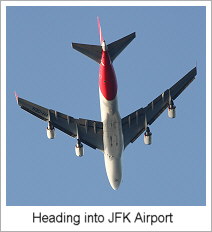
You are within your rights to photograph children in a playground, even if they are not your own children. However it's very likely that in most parts of the USA this will be regarded as a suspicious activity and it's very likely people (including parents and the police) will question your motivation. Despite this, the act of photography under these circumstances is not illegal - but it probably is unwise. You can also photograph buildings, bridges, power lines, transportation systems, trains, aircraft, chemical plants, oil refinaries, police officers, security guards, accidents and fires. Again, if you do so you run the risk of being questioned about your motives, but what you are doing with respect to photography is not illegal. Trespassing on private property to get such pictures, is of course, not permitted.
Despite previous actions of the NYC transit police, you can also legally take photographs in the NYC subway. In fact Rule 1050.9 (c) of the state code says, “Photography, filming or video recording in any facility or conveyance is permitted except that ancillary equipment such as lights, reflectors or tripods may not be used.”
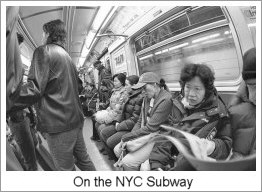
However pointing this out to the transit police may well get you arrested, but in 2009 it cost NYC slightly over $30,000 when one photographer was arrested and sued the city (and won)! Several other photographers who were arrested for doing nothing particularly illegal have also won suites against NYC.
The Chicago Transit Authority has a similar policy allowing photography and the details can be found on the CTA website, and Amtrak also specifically permits non-commercial hand held photography without a permit.
Of course you can't break other laws while taking the pictures, so, for example, you can't obstruct a crowded sidewalk with a tripod, nor can you interfere with the police or hinder them from performing their duty. You can't trespass. You also can't harass someone by following them around all day and taking their picture if they object (though celebrities give up some of that right). However you couldn't do these things if your were not taking pictures either. Just having a camera gives you no extra rights, but it doesn't remove the rights you would have if you didn't have a camera!
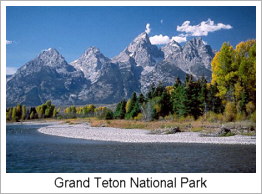
There has long been some confusion about photography in national parks because the rules require a permit for commercial photography. However the lead officials in the park service have several times said that this rule only applies to commercial photography which is disruptive and not to individuals. So, for example, if you arrive at the park with 2 models, a crew of 5, still and movie cameras, generators, lighting gear and props, you need a permit (and possibly liability insurance). On the other hand if you are a solo photographer shooting for possible commercial sale, then the normal park rules apply and you can shoot anything and anywhere that any member of the general public is allowed to. Some areas in Washington DC parks and monuments restrict the use of tripods (for safety reasons), but not photography with a hand held camera.
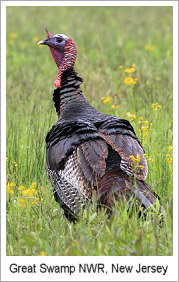 States often have their own rules and regulations and these are often selectively enforced. For example California Code of Regulations Title 14, Section 4316 "Commercial Filming Except when authorized by State Parks, no person shall photograph, videotape or film for commercial (profit and sale) purposes in any unit, or portion thereof, owned operated or administered by the department without a permit from the California Film Commission, pursuant to Government Code section". The letter of the law appears to prohibit photography by a single photographer with a P&S camera without a permit if that photographer intended to use the images for sale. I doubt anyone has been prosecuted under such circumstances but they could be. It is true that amateurs using what looks like "professional photography equipment" to a Park Ranger have been challenged and told they couldn't take pictures without a permit.
States often have their own rules and regulations and these are often selectively enforced. For example California Code of Regulations Title 14, Section 4316 "Commercial Filming Except when authorized by State Parks, no person shall photograph, videotape or film for commercial (profit and sale) purposes in any unit, or portion thereof, owned operated or administered by the department without a permit from the California Film Commission, pursuant to Government Code section". The letter of the law appears to prohibit photography by a single photographer with a P&S camera without a permit if that photographer intended to use the images for sale. I doubt anyone has been prosecuted under such circumstances but they could be. It is true that amateurs using what looks like "professional photography equipment" to a Park Ranger have been challenged and told they couldn't take pictures without a permit.So the situation is that in national, state and local parks and other controlled areas there may be regulations restricting commercial photography but not amateur photography. While these regulations shouldn't affect amateur photography they sometimes do because those responsible for enforcing these rules either (a) don't understand them and/or (b) are unable to differentiate between commercial and amateur photography using "professional" equipment (which apparently means an SLR to some Park Rangers!).
There are a number of laws regarding photography and voyeurism which vary from state to state (See this list). All are related to invasion of privacy issues. Texas takes this one step further via the Texas Improper Photography statute which states (in part)that it is an offense to take a photograph "without the other person's consent and with intent to arouse or gratify the sexual desire of any person".
Who can object and what can they do about it
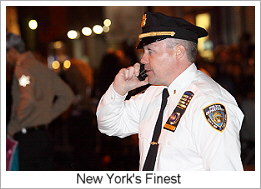
Most often objections to photography will come from private property owners or their security personnel (e.g. "Mall Cops"). If you are on their property they can instruct you to stop taking photographs and/or leave the property. That's the limit of their powers. They can't make you show them your pictures, give them your film or memory card or take your camera. All they can legally do is ask you to leave. If you refuse to stop taking pictures and/or leave the property, they can call the police and you may be arrested for trespass or other charges if you refuse to obey their lawful order to leave and cause a disturbance. If they arrest you, the police may seize your film or memory card, but they still need a search warrant in order to view the contents of the card if you refuse to show them what is on it. Click on the document below(right) for a copy of the NYC police operations order regarding "suspicious photography".
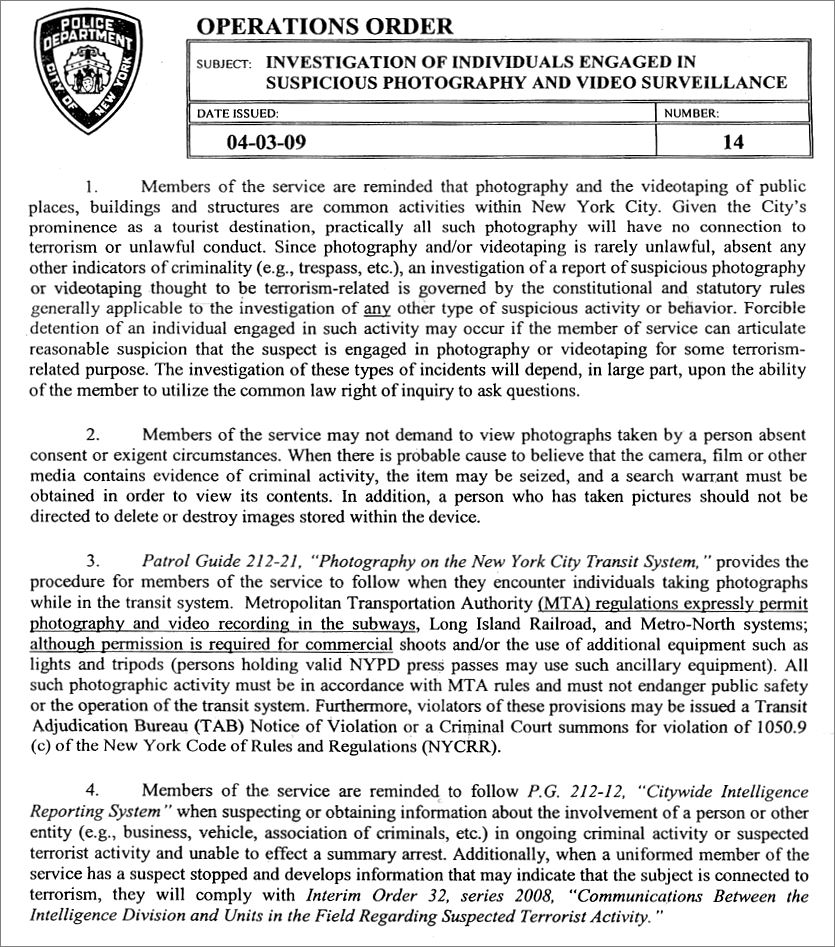
In general when dealing with the police, the best advice to minimize your problems is to be polite and cooperative (at least up to a point). If you're loud, argumentative, combative and refuse to assist in any way, you may be in the right, but you'll likely be arrested for something and have to spend a time and money defending yourself in court. Unless you are driving, you do not have to provide any ID information to the police. Technically you do not have to show any ID if you are just being questioned, though refusing to do so will likely result in greater problems. The ACLU have information on what is legally required if you are questioned by a police officer. Personally, I'd cooperate, show them my ID, show them my pictures, but I'd draw the line at deleting anything, since the police have no authority to make you do that. Of course deleted images are trival to recover later using data recovery software, so that's a decision you have to make for yourself.
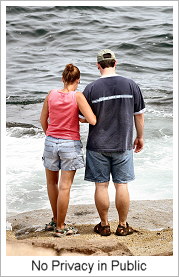
Obviously anyone can object to having their picture taken without permission, but they have no legal grounds to do so if they are in public. It's up to you, the photographer, to decide exactly what is prudent and what is likely to cause you a problem (up to and including physical violence). It's like being run over by a truck while crossing at a "Walk" sign. You may be in the right, but that doesn't stop the truck from hitting you. Just because you have the right to take a picture doesn't always mean it's prudent to do so.
Laws in the United Kingdom related to Terrorism and Photography
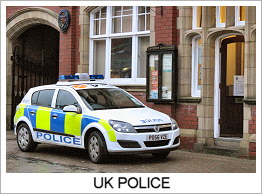
In the UK under section 43 of the Terrorism Act 2000
"a police officer may stop and search a person they reasonably suspect to be a terrorist, to discover whether that person has in their possession anything which may constitute evidence that they are a terrorist. This power can be exercised at any time and in any location".
This has been widely used to stop and question photographers, though the government has stated
"Section 43 does not prohibit the taking of photographs, film or digital images in a public place and members of the public and the press should not be prevented from doing so in exercise of the powers conferred by section 43"
In addition under section 44 of the Terrorism Act 2000
"uniformed police officers may stop and search anyone within an authorized area for the purposes of searching for articles of a kind which could be used in connection with terrorism. The powers do not require a reasonable suspicion that such articles will be found. Police officers can stop and search someone taking photographs within an authorized area just as they can stop and search any other member of the public in the proper exercise of their discretion, but the powers should be used proportionally and not specifically target photographers."
The government goes on to say
"Section 44 does not prohibit the taking of photographs, film or digital images in an authorized area and members of the public and the press should not be prevented from doing so in exercise of the powers conferred by section 44"
US photographers may note that neither the Patriot Act nor the Homeland Security Act have any provisions that specifically prohibit or restrict photography, though obviously if you are suspected of being a terrorist, you will be detained and questioned.
What can you do with your photographs
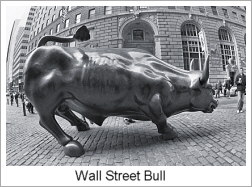
You own the copyright to any image you have taken and you can use it for pretty much anything that doesn't come under the definition of "commercial purposes", which in general means advertising. For example you can sell the images to a newspaper or magazine for use in editorial content. Editorial content is pretty much anything that's not advertising. For commercial usage you need a signed release from anyone identifiable in the image, or in some cases for any identifiable private property. You can generally sell your images as art without a release. Of course exactly what constitutes "commercial use" has to be defined by a court, but generally if the use can't be somehow construed as advertising in some form, you're OK.
An important case involving the right of a street photographer to take pictures of the public and sell them as art is Erno Nussenzweig vs. Philip-Lorca diCorcia
Misrepresenting someone in a picture may open you up to a lawsuit. So, for example, you can take a picture of someone walking on the street and put it in a magazine article on pedestrian traffic without getting a release and without risk of (losing) a law suit. However if you put the same picture in an article on drug dealers and there's an implication that the identifiable subject of the picture is a drug dealer (when in fact they aren't), then you are opening yourself up to potential legal action.
Note that some buildings may be trademarked and or copyrighted if they are of a unique design. The use of images of such buildings for commercial purposes requires a release from the property owner, but no release is required for editorial use in a magazine or newspaper as long as the images were taken from public property. In a now famous case, the court ruled that images of a trademarked building (in this case theRock and Roll Hall of Fame) maybe sold on postcards and posters without a property release from the building's owners.
However permission is required to take and use images of copyrighted or trademarked buildings if they are not in public view and are shot from a location on private property.
Summary
With respect to the USA:- With a few notable exceptions detailed above, you can photograph anything you can see in public. That means you can legally photograph subjects such as people, buildings, bridges, trains, police officers etc. without asking or getting prior permission. On private property (e.g. in shopping malls, stores, theaters, hotels and sports arenas) you need the permission of the property owner to take photographs. While the act of photography itself in such areas isn't illegal, if asked to stop taking pictures and leave you must do so or risk prosecution for trespass.
- You can generally take photographs of and in public areas of transit systems. For Example, Amtrak and the New York and Chicago Transit authorities specifically permit hand held non-commercial photography as long as it doesn't interfere with other passengers or the system operation.
- Nobody has the right to require you to delete images you have taken and only the police can require that you show them the pictures in your camera - and even that requires a search warrant unless you give them permission.
- Signed releases are only required for commercial (trade and advertising) use of photographs. Editorial, news and art usage generally requires no release from the subject, though some publication may requires them "just to be on the safe side".
http://www.bobatkins.com/photography...aw_rights.html
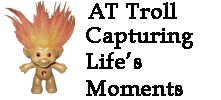

 Camera self help articles
Camera self help articles Category Widget (Show all)
Category Widget (Show all)
 Recent Articles
Recent Articles